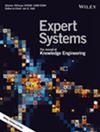CATcAFSMs:基于情境的自适应信任计算,用于检测基于雾计算的智能医疗系统中的攻击行为
IF 3
4区 计算机科学
Q2 COMPUTER SCIENCE, ARTIFICIAL INTELLIGENCE
引用次数: 0
摘要
雾计算的基本分布式特性和处理传输中数据的能力(即实时决策),使其非常适合涉及需要通信、提供实时数据分析和执行存储功能的多个分布式设备的应用场景。大多数雾计算应用都是由用户的需求和/或对功能服务的渴望驱动的,要么忽略了安全问题,要么将其放在次要位置。雾计算的安全问题尚未得到足够重视。由于与云计算相关的安全难题,雾计算可能会被利用。由于雾计算可以灵活地在终端用户附近运行,并且独立于集中式设计,因此可以为时间敏感的智能医疗系统提供所需的可靠性。由于医疗保健数据的重要性,雾计算需要增强安全性和隐私性的解决方案,其中信任是至关重要的。本研究旨在利用贝叶斯方法和相似性措施,为智能医疗环境开发一种基于上下文的自适应信任解决方案,以防止恶意中伤和选票填充,而针对雾的上下文相关信任解决方案仍是一个尚未开发的研究领域。我们在 Contiki-Cooja 中模拟了所提出的信任模型,以评估我们的研究结果。与静态加权不同,该模型使用熵值为直接和间接信任提供自适应加权,以确保信任偏差最小,而上下文相似性计算则通过利用服务器、同事和服务的相似性来消除具有恶意意图的推荐节点。所提出的模型利用相似度指标保护智能医疗系统免受攻击,结合上下文,还使用自适应加权进行信任计算。通过消除信任偏差和检测攻击,该解决方案的信任计算比以前的解决方案提高了 10%。由于信任计算开销较小,线性复杂度为 O(n),因此这种模式非常高效。本文章由计算机程序翻译,如有差异,请以英文原文为准。
CATcAFSMs: Context‐based adaptive trust calculation for attack detection in fog computing based smart medical systems
Fog's basic distributed nature and ability to process data in transit—that is, to make decisions in real time—make it a good fit for scenarios involving several distributed devices that need to communicate, provide real‐time data analysis, and carry out storage functions. The majority of fog computing applications are driven by the user's demands and/or their desire for functioning services, either neglecting or giving security considerations second attention. Fog computing security issues have not received enough attention. Fog computing could be exploitable due to the security difficulties associated with cloud computing. Due to its flexibility to function near the end user and independence from a centralized design, fog computing provides the dependability required by time‐sensitive smart healthcare systems. There is a need for enhanced security and privacy solutions for fog computing, where trust is essential, due to the importance of healthcare data. This research aims to develop a context‐based adaptive trust solution for the smart healthcare environment utilizing Bayesian approaches and similarity measures against bad mouthing and ballot stuffing, while context‐dependent trust solutions for fogs remain an unexplored area of study. The proposed trust model has been simulated in Contiki‐Cooja to evaluate our findings. In contrast to static weighting, adaptive weights are provided to direct and indirect trust using entropy values that ensure the least degree of trust bias, and context similarity calculations eliminate recommender nodes with malicious intent by leveraging server, colleague, and service similarities. The proposed model protects smart healthcare systems from attacks using similarity metrics, incorporates context, and also uses adaptive weighting for trust calculation. By eliminating trust bias and also detecting attacks, this solution enhances the trust calculation by 10% as compared to the previous solution. This paradigm is efficient due to its small trust computation overhead and linear complexity O (n ).
求助全文
通过发布文献求助,成功后即可免费获取论文全文。
去求助
来源期刊

Expert Systems
工程技术-计算机:理论方法
CiteScore
7.40
自引率
6.10%
发文量
266
审稿时长
24 months
期刊介绍:
Expert Systems: The Journal of Knowledge Engineering publishes papers dealing with all aspects of knowledge engineering, including individual methods and techniques in knowledge acquisition and representation, and their application in the construction of systems – including expert systems – based thereon. Detailed scientific evaluation is an essential part of any paper.
As well as traditional application areas, such as Software and Requirements Engineering, Human-Computer Interaction, and Artificial Intelligence, we are aiming at the new and growing markets for these technologies, such as Business, Economy, Market Research, and Medical and Health Care. The shift towards this new focus will be marked by a series of special issues covering hot and emergent topics.
 求助内容:
求助内容: 应助结果提醒方式:
应助结果提醒方式:


